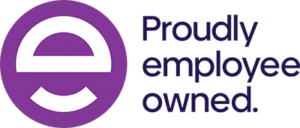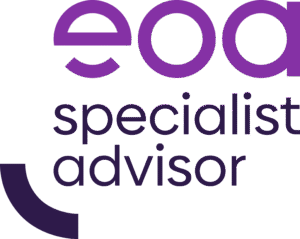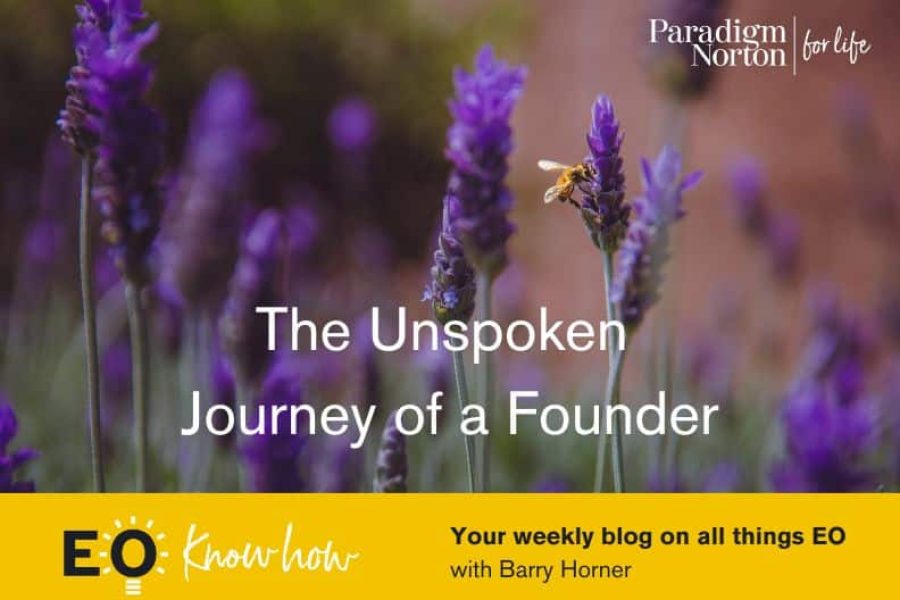Employee Ownership

Introduction
Supporting your Transition with Expertise and Care
Having become employee-owned in 2019, we’ve built deep expertise in the personal financial planning needs of those transitioning to employee ownership.

When selling your business to an Employee Ownership Trust (EOT), you’re embarking on a significant life event with profound financial implications. At Paradigm Norton, we understand the unique challenges and opportunities this transition presents.
How we help
Our Comprehensive Financial Planning Services for EO Business Owners
Understand Your Current Financial Situation
We start by helping you gain a clear understanding of your financial situation, including assets, liabilities, income, and expenditure. This foundation allows us to model the potential impact of the business sale on your personal finances, ensuring informed decision-making.
Determine Your Future Financial Goals
Whether you’re planning for retirement, investing for long-term growth, or exploring new ventures, we work with you to define clear financial goals. These goals will guide your financial decisions and align your actions with your desired future outcomes.
Seek Expert Professional Guidance
Our team of qualified financial planners and tax specialists will help you navigate the complexities of the EOT transaction. We collaborate with other trusted advisers to optimise tax benefits and develop a personalised financial plan that supports your goals.
Diversify Your Investments
To mitigate risk and enhance future returns, we help you diversify your investment portfolio across various asset classes such as stocks, bonds, and real estate. This approach safeguards your financial stability against market fluctuations.
Evaluate Your Retirement Needs
If retirement is your primary goal, we assess your retirement savings and determine if the sale proceeds (receipt of deferred consideration) will support your desired lifestyle. We consider factors like life expectancy, retirement age, and expected post-sale income to ensure a secure retirement.
Protecting Your Estate
We assist in reviewing and updating your estate planning to reflect your new financial situation and future goals. This includes revising wills, trusts, and beneficiary designations to ensure your assets are distributed according to your wishes.
Seek Ongoing Financial Planning Advice
As your financial situation evolves, regular reviews and adjustments are essential. We maintain ongoing communication to ensure your financial plan remains aligned with your goals and adapts to any changes.
Why choose Paradigm Norton to support your EO transition?
- Expertise in Financial Planning for Employee Owned Businesses:
We employ a team of highly qualified financial planning professionals who understand the particular challenges and nuances of working with the vendors of businesses that have been sold or are in the process of being sold to an Employee Ownership Trust (EOT).
- Outstanding Client Care
We prioritise understanding the unique culture of employee-owned businesses and offer personalised guidance tailored to your specific circumstances.
- Tailored Solutions
We recognise that no two employee owned businesses are the same. Our financial strategies are custom-built to meet your unique needs and goals.
Still have questions or want to know more?
Ready to talk about the future?
Employee Ownership is a meaningful journey that can bring lasting rewards, both for the business and the people who make it thrive.
Values
Why choose Paradigm Norton?
We always put you, your values, and your future at the heart of every conversation. Our approach ensures that every strategy we craft is deeply aligned with what matters most to you, securing not just your wealth, but your well-being.
We start the financial planning process with the most important part – You. We’re not here to show you the way: we’re here to guide and navigate you through a path of your own choosing.
As one of the largest independent financial planning companies in England, serving more than 1,000 clients, we’re not just Chartered Financial Planners… we’re tried and tested financial partners.
Money matters, but life matters more. Our motto bleeds into everything that we do, from connecting you to responsible investment strategies to enabling you to build a brighter future, with a lighter footprint.
As a Certified B Corporation®, we balance profit with purpose, people and the environment.
Watch back
Working with Business Owners
We are an employee-owned financial planning firm that believes the way we work should reflect the future we want to build. Hear from Barry, Philippa, Simon and Kim on their experiences in this short video.
Read
EO Know How
- Real stories
- Practical advice
- Myths, busted
If you’re on the EO journey (or just EO-curious), this series is for you.
Team
Our Employee Ownership Team
Our employee ownership team can support you and help give you clarity.
Read
Employee Ownership Scheme Trends for 2025
Why employee ownership schemes are exploding in 2025 (and not for the reasons you might think).
In this white paper, we’ll explain why the perceived leading benefit of tax breaks really is at the bottom of the pile when it comes to reasons for transitioning to an employee-owned model and we will share our learned observations, having gone through the process ourselves.
Free financial planning resources
Helpful tools and guides to start planning your financial future with confidence.
Questions
Employee Ownership FAQs
The questions a business owner should ask when looking to transition their business to employee-ownership.
How much cash will I receive upfront, and how quickly will I get the balance?
This is usually the first and most critical question for a seller. In an EOT sale, the upfront cash is typically a smaller portion of the total sale price, often funded by the company’s existing cash reserves or limited third-party debt.
Most of the sale price is paid as ‘deferred consideration,’ meaning it’s paid to you over several years (commonly 5-10 years) from the company’s future profits. The exact timeframe depends on the business’s cash generation ability and the agreed-upon payment schedule. You need to be comfortable with this extended payment timeline and the inherent reliance on the business’s ongoing success.
Crucially, the entire value of your deferred consideration will be considered part of your estate upon death, even if only a fraction has been received. This necessitates seeking specialist estate planning advice.
*Estate planning is not regulated by the Financial Conduct Authority.
What are the tax benefits for me specifically, and are there any risks?
While a sale to a qualifying Employee Ownership Trust (EOT) remains a highly tax-efficient exit route, the Autumn Budget 2025 significantly reduced the available relief. For transactions completing on or after 26 November 2025, the previous 100% Capital Gains Tax (CGT) exemption has been cut to 50%.
This results in an effective CGT rate of 12% for higher-rate taxpayers on the sale of a controlling interest (more than 50%). Although this is a major shift from the previous ‘zero-tax’ incentive, it still offers a saving compared to the 24% main CGT rate applied to trade sales.
If the EOT subsequently ceases to meet these conditions within a specified period (as of publishing (2025), this is four tax years after the sale), the CGT relief can be clawed back from you, the seller. Therefore, specialist tax advice is paramount to ensure compliance and understand these potential risks.
*Tax planning is not regulated by the Financial Conduct Authority.
How much control will I genuinely retain, and what will my role be after the sale?
For the EOT to qualify, it must acquire and retain a controlling interest in the company. This means you will no longer be the majority shareholder and will relinquish ultimate control. While you can remain involved, perhaps as a director, chair, or adviser, your role will fundamentally change. You will move from being the ultimate decision-maker to being part of a governance structure where the EOT trustees (acting for the benefit of employees) hold the ultimate power. Your influence will be consultative, not unilateral. Be prepared for a significant shift in your day-to-day authority.
What happens if the business doesn't perform well after I've sold it to the EOT?
This is a crucial concern, as your deferred payments are directly tied to the business’s profitability and cash flow.
If the business underperforms, struggles with inconsistent profits, or faces unforeseen challenges, the ability to service your deferred payments could be compromised. This means your future payments could be delayed, reduced, or even, in extreme cases, at risk.
The EOT structure places a significant reliance on the ongoing strength and effective management of the business post-sale. Due diligence on the management team and financial projections is essential for your peace of mind.
What are the costs I will incur personally for this transition, and what support will I need?
While the Capital Gains Tax (CGT) relief can be substantial, there are still significant professional fees involved in an EOT transaction. These will typically include legal fees (for setting up the EOT, share sale agreement), accounting and tax advisory fees and valuation fees. These costs are often borne by the business (or by the EOT, paid from the business’s resources), but you, as the seller, need to understand the overall financial outlay and how it impacts the net proceeds you receive.
You will need a project team of specialist EOT advisers – typically a financial planner, corporate finance adviser, specialist EOT lawyer and tax accountant – to navigate the complexities.
Aside from the fee discussion, one key question to ask your legal adviser is ‘How many EOT transactions have you and your firm completed?’. Most of the legal firms that we work with have completed 50+ transactions.
How will my legacy and the company culture that I built be best protected?
For many business owners, this is a deeply personal question beyond financial considerations. Transitioning to employee ownership is often chosen precisely because it offers a robust mechanism that to an extent seeks to preserve the company’s unique culture, values and independence, unlike a sale to an external trade buyer who might integrate, restructure, or even relocate the business. This means your vision and the ‘spirit’ of the company you built are more likely to endure, providing a significant emotional return for the seller.
Latest articles
Paradigm Thinking
Here we share our news and insights into the Paradigm
Norton way of approaching financial planning for EO business owners.










